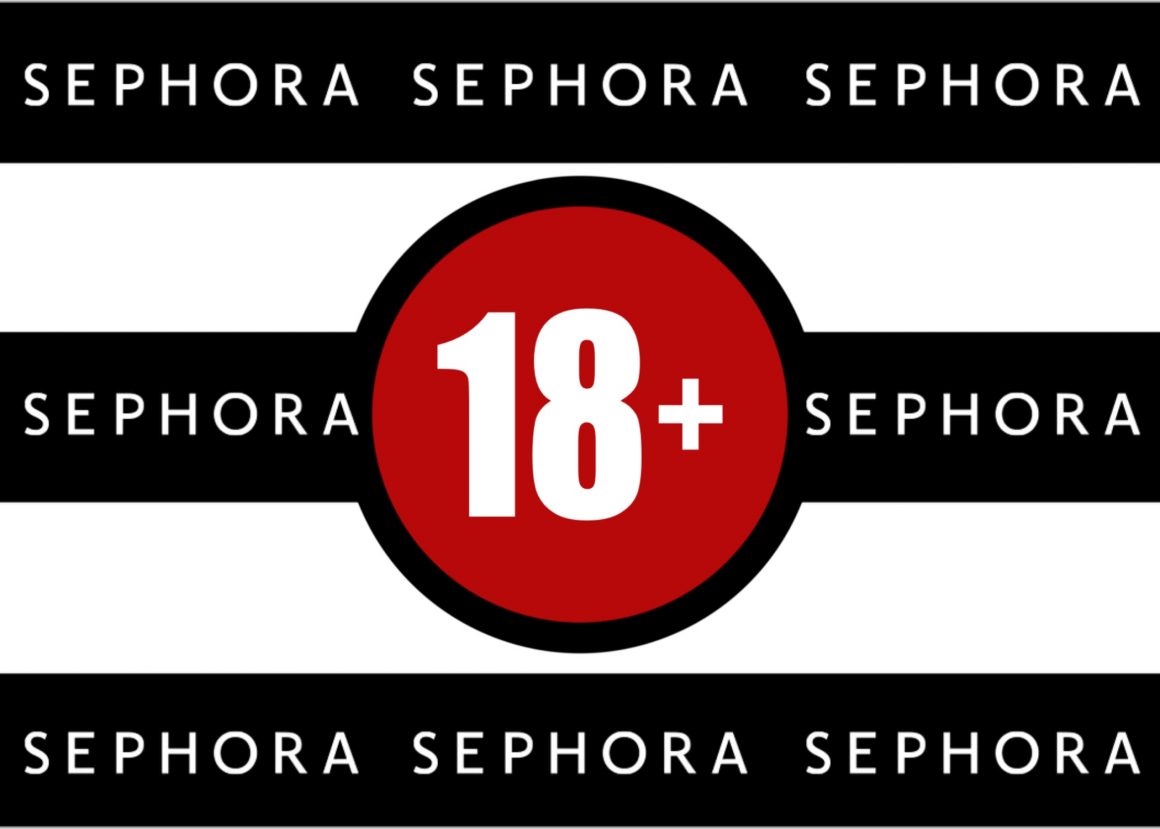
Emerging chaos and frustrations call for age-restriction policies at Sephora
By Andreea Timis, February 25 2024—
One of the most globally prosperous companies, Sephora has lately become the subject of scrutiny amidst controversy regarding the presence of children and young teenagers in the shop. Reports from frustrated customers state that kids below the age of 13 have been overcrowding stores, disrespecting employees and customers, mishandling expensive products and mixing and emptying testers. While many defenders cite parental irresponsibility, protesters advocate for the implementation of age limits when entering the multibillion-dollar company’s stores.
It’s not a secret that kids and teenagers these days are heavily dependent on social media. Platforms such as TikTok, Instagram and YouTube have lately shifted their content to accommodate marketing to younger demographics — and generation Alpha is at the receiving end of it. Gone are the days of buying your favourite Disney star’s sparkly fruit-flavoured lip gloss and rainbow-coloured eyeshadow encased in plastic flip phones because it’s cool. Teenagers these days are being influenced by the media to look a certain way and thus feel pressured to purchase expensive products from largely adult brands to ease their anxieties. They are taught to vilify their puberty-induced acne and turn to quick, easy fixes in the form of luxury brands from the misconception that increased popularity and cost denotes perfect results.
The newly trending hashtag #sephorakids demonstrates the chaos in full effect. Countless influencers have been using their platforms as a medium to speak out about the matter. Opinions stand almost equally divided regarding the age restriction controversy, and whether we should instead redirect our focus to enhancing parental accountability. One Sephora worker highlighted an experience where a young girl had come to her with $900 worth of items. Even after she was arduously persuaded to remove some items, the total cost still came to an exorbitant $500 amount, at which the girl seemed completely unfazed. In her video, the worker emphasized criticism of the obvious lack of parenting skills and affirmed that it’s the parents that need to change first.
Adversely, opposers address arising concerns about the presence of harsh ingredients in certain products that are harmful to young skin. Retinols are the most common example as they are a staple in many skincare products, which often go overlooked as their misleading title is falsely associated with healthier skin. Retinols contain anti-aging properties and are made up of highly active chemicals damaging to immature skin. Many other ingredients like exfoliating acids and C vitamins that manage to sneak their way into skincare products and serums are equally detrimental and cause an oversight as they blend into lengthy ingredient lists of products branded as effective for skin. While this rationale falls in favour of the parental responsibility and supervision argument, opponents maintain that an overall age limit policy would serve as a safer alternative to eradicate negligence.
The reality we are confronted with is that the likelihood of mass-market companies like Sephora restricting their number of consumers is slim. As a business, companies will always resolve to attain the most profitable solutions in terms of revenue. The surge in youth customers serves as an added bonus to Sephora’s exponentially growing economy and it is unlikely that the company will actively choose to weed that out.
Instead, the probable solution will be to cater to generation Alpha by maximizing the inclusion of youth-friendly products on the market. Emergent skincare company Drunk Elephant has already tackled this issue by listing products they’ve claimed are safe for kids. Paired with the bright neon colours of their product containers attractive to children’s eyes, this has greatly contributed to the company’s rising popularity on media platforms and increased demands from younger buyers.
The implementation of stricter behaviour-monitoring policies within stores is a favourable possibility and the removal of tester samples is a pending prospect, although the viability of this option is an ongoing debate. The stagnant issue of expensive prices can only be diminished by fortifying parental supervision. The approach to the #sephorakids matter therefore might not lie in a one-size-fits-all approach to preventing certain age groups from shopping there — but rather in a delicate balancing act between the targeting of a younger demographic from a marketing perspective and the reinforcement of parental responsibility.
This article is a part of our Opinions section and does not necessarily reflect the views of the Gauntlet editorial board.
